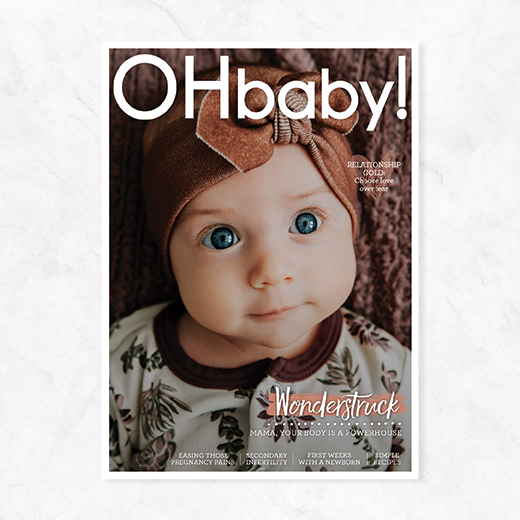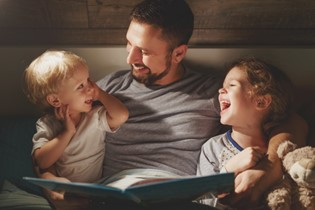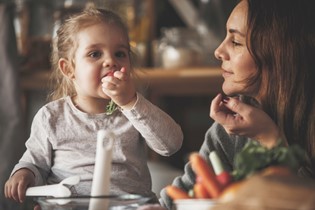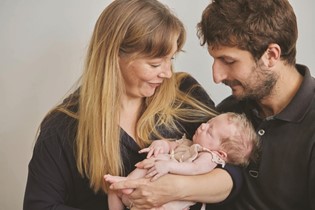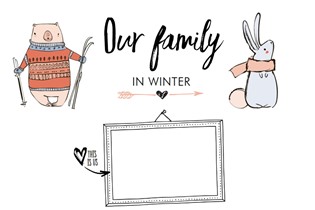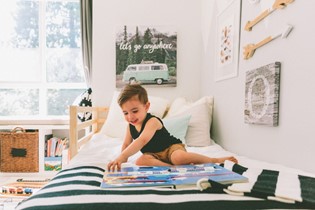How to parent little people with big feelings

Toddlers and their big feelings can create a battlefield. Colin Gruetzmacher discovers the power of words to bring peace into the family home.
You know that moment when you’re searching for a word and it just doesn’t show up? It’s so frustrating to stand there stuttering and slack-jawed while you try to express something that is suddenly inexpressible.
Once I was visiting Norway while travelling through Europe, and I went into a store to grab some kai. Everything was fine until I was given my change. I looked up at the cashier to say ‘Thank you’, but realised I had no idea how to say it in Norwegian! My brain frantically scanned for a word but came up empty. So, after an uncomfortable amount of awkward eye contact, I mumbled something that sounded like ‘Thungru’ and left the building with my head hung low in shame. Moments like these help you realise that language is so important. Communication is power.
I’ve been thinking about this as my boy, Leo, gets older and begins mastering language. I know every parent thinks this about their kids, but I reckon he’s wicked smart. He loves letters and intentionally plays around with words, mangling them up so that they rhyme and make funny sounds. Words that rhyme with ‘Poo’ are especially popular right now. Because of this, I probably take it for granted that he knows the word for almost everything and can tell me what’s going on. Some concepts are hard to articulate though – especially those involving our own internal world.
One morning he came out for breakfast and everything seemed fine until I didn’t have the right spoon for his porridge. His regular star spoon was in the dishwasher and his sister was using the green one with bubbles. He tried a few times to tell me that he wanted his normal spoon, but when I explained why he couldn’t use it, he just shut down. I tried coaxing him to eat, tried turning it into a game, tried reasoning with him, but nothing worked. So, in classic Dad Mode, I deepened my voice and told him to eat. I squared my shoulders and made myself really manly, so as not to lose the power struggle. This didn’t go that well, and pretty soon we were both having a Time Out in our rooms.

After taking a moment to remember that I don’t win any man- points for being stronger than a toddler, I went into Leo’s room to talk it through. As I tried to talk to him, I could see how he was so overwhelmed by the depth of his emotions. He looked like I did at that cash register in Norway, trying to express something that was inexpressible to him. So I asked him, “Leo, do you feel angry?”, and it was like a dam of relief broke. He latched on to the word that described him. “YEEEESSS!” he cried. “Is it a bit scary to feel this angry?” Again, a huge cry of relief as he grabbed on to another relevant word.
I reckon it’s easy to forget that our little kids don’t always have the words to describe big concepts. Can you imagine how scary it must be to have your whole body overwhelmed by an emotion that you don’t recognise or understand? To be so overcome that you can’t think and can’t move and you couldn’t even begin to describe it if you tried? To feel so powerless?
I held him close and told him it was okay to feel angry sometimes, that it was okay to feel scared by it, and that it would probably help to tell me or Mum about it. As he learned these new ideas, and felt understood, I could feel his breathing slow down and his body relax. Before we knew it, we were wolfing down breakfast together and making funny faces at each other from behind the cereal boxes.
The episode made me reconsider my role as a dad. As I help my son learn to climb, kick balls and play mean drum solos, I also need to make sure he learns how to communicate. Being able to recognise emotions and communicate them is a powerful tool. Sure, it will help him in countless situations in the future, but it also might just make breakfast time a bit easier too.
|
Colin Gruetzmacher is the pastor of Golden Sands Baptist Church. He lives in Tauranga with his wife and two young children. When he’s not teaching his kids linguistics, he can be found kicking a ball around with them in the backyard. |

AS FEATURED IN ISSUE 46 OF OHbaby! MAGAZINE. CHECK OUT OTHER ARTICLES IN THIS ISSUE BELOW
